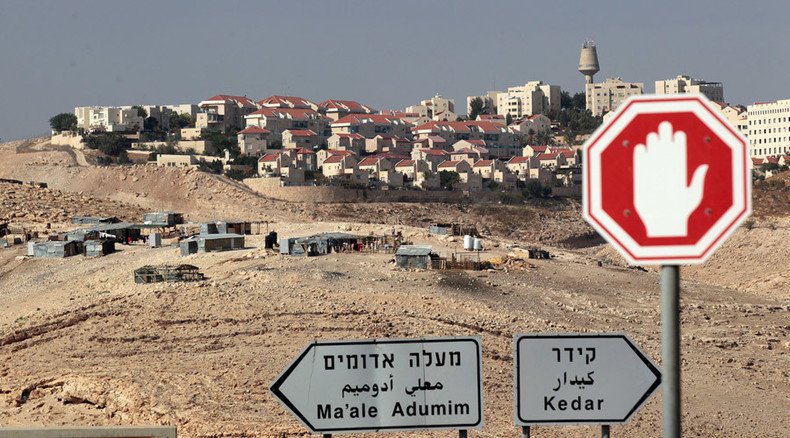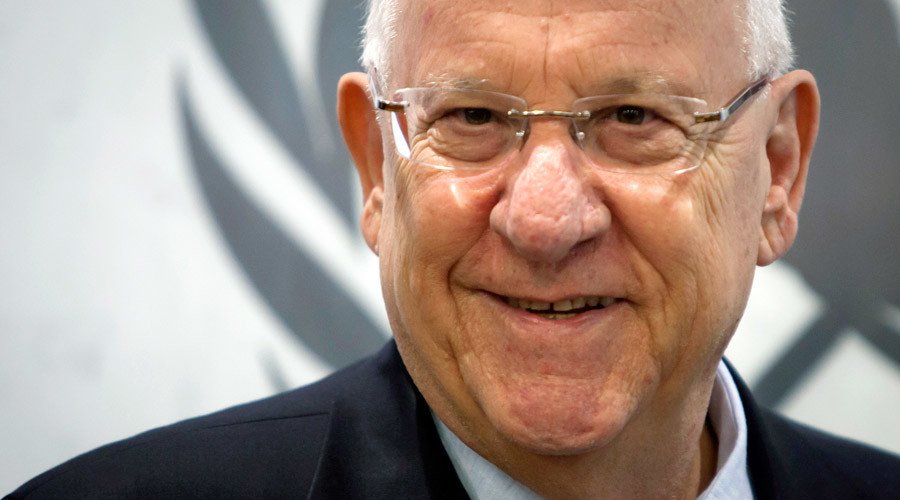Israeli president says govt has ‘right’ to build West Bank settlements

Israeli President Reuven Rivlin says the country has the “right” to build settlements in the West Bank and it is “not a matter of political debate.” His comments are likely to cause controversy, with the EU and Palestine opposed to illegal Israeli development in the area.
Although the building of Jewish settlements in the occupied West Bank is illegal under international law, Rivlin believes that the “land of Israel” includes this territory.
"I love the land of Israel with all my heart,” Rivlin said, AFP reported. “I have never and will never give up on this land. For me, our right to this land is not a matter of political debate. It is a basic fact of modern Zionism.”

Aside from being illegal, the building of settlements has also been a major obstacle to peace negotiations between Israel and Palestine. The Palestinians see the West Bank as part of any future independent state.
"We must not give anyone the sense that we are in any doubt about our right to our land. For me, the settlement of the land of Israel is an expression of that right, our historical right, our national right," Rivlin said.
Jewish terror attacks
The statement by the Israeli president comes at a time of heated tensions between Israel and Palestine, following the murder of a Palestinian man and his toddler son in an arson attack in Duma in the northern West Bank.
The attack, by Jewish extremists early on the morning of July 31, saw them hurl a Molotov cocktail through a window of a Palestinian home. An 18-month-old infant boy, Ali Dawabsheh, was killed in the blaze. His father, Saad Dawabsheh, died a few days later from his injuries.
On August 9, Israeli security forces conducted raids on settler outposts in the occupied West Bank and arrested at least nine suspects in connection with the killings.
BREAKING: Palestinian baby burned to death in suspected Jewish ‘price tag’ attack http://t.co/NnjNwkubBXpic.twitter.com/vtuxJOVKAj
— RT (@RT_com) July 31, 2015Three alleged Jewish extremists were subsequently placed in administrative detention – the first time the measure has been used against Israelis. “Administrative detention,” which means holding suspects without trial in Israel, was previously only used against Palestinians.
Amid the outrage caused by the deadly arson attack by suspected Jewish extremists, Israel has continued razing Palestinian properties and making space for newly-approved housing units intended for Israeli settlers in the occupied West Bank.
“We are the tip of the spear… [and the] shield” that protects Israel, a spokesman for the settlers of Yitzhar in West Bank, Ezri Tubi, told the Washington Post. While he admitted that some of the Israeli settlers were extremists, Tubi denied that any of them supported the shocking arson attack.
US & EU pressure
The practice of bulldozing Palestinian buildings combined with ever-expanding Israeli settlement activity has always been met with strong criticism from the international community, and even Washington, Israel's most outspoken ally, has voiced “deep concerns.” Last year alone, Israel demolished 601 Palestinian-owned structures in the West Bank, displacing 1,215 people to build new homes for the Jewish settlers.
Tip of the spear: Israel razes ‘illegal’ Palestinian homes amid West Bank settlement expansion
http://t.co/KHVytShMAbpic.twitter.com/HqKscSDiKd
— RT (@RT_com) August 9, 2015In July, Washington lashed out at Israel’s decision to allow “illegitimate” new settlements in the occupied West Bank, which would see the construction of 300 new homes.
“The United States continues to view settlements as illegitimate and we strongly oppose steps to advance construction in the West Bank and East Jerusalem,” State Department deputy spokesman Mark Toner said in a statement.
“Settlement expansion threatens the two-state solution and calls into question Israel’s commitment to a negotiated resolution to the conflict.”
More than 500,000 Israelis live in settlements in the West Bank and around East Jerusalem, built since the 1967 Israeli occupation of Palestinian territories.
The occupied territories have been seeking full independence from Israel for decades, with Palestinians demanding full recognition as a sovereign state from the UN and the international community.












